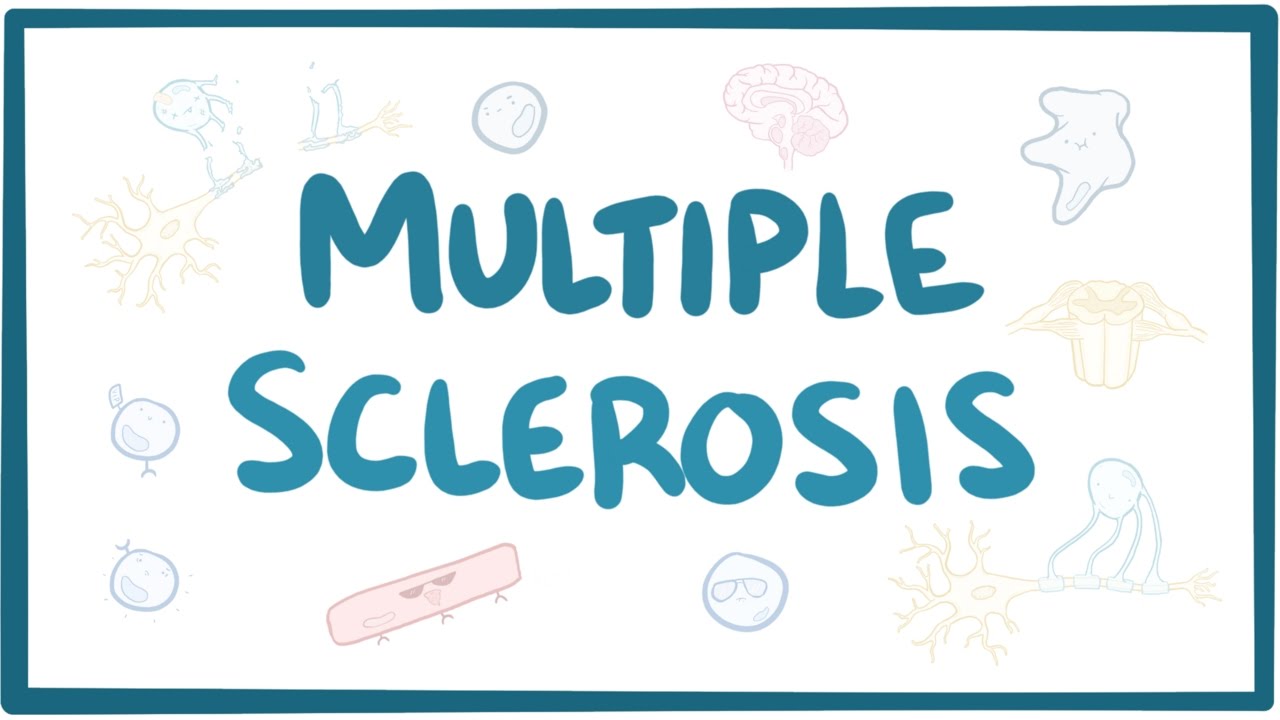Sex Matters In Multiple Sclerosis - Understanding Sex And Relationships In Multiple Sclerosis
Women with multiple sclerosis (MS) have about 20% more clinical relapses than males and have a greater relapse rate throughout the illness.
Many natural history studies on MS suggest that sex matters in multiple sclerosis.
Multiple sclerosis (MS) is the most prevalent central nervous system chronic inflammatory and neurodegenerative disease (CNS).
The susceptibility of this debilitating illness is stronger in ladies than in males, with the risk of MS being three times higher in women than in men.
Even though men have a lower chance of having MS, several studies show that men have poorer clinical results.
MS has an apparent sexual dimorphism in both the immune response and the pathophysiology of CNS injury, impacting disease susceptibility and progression differentially.
Women are more likely than males to have inflammatory relapses, while men are more likely to have symptoms of disease progression and severe CNS injury.
Sexual dimorphism in MS may be caused by sex hormones and sex chromosomes functioning in tandem or combination.
What Is Multiple Sclerosis?
Multiple sclerosis (MS) is a potentially devastating brain and spinal cord illness (central nervous system).
The immune system assaults the protective coating (myelin) that protects nerve fibers in MS, causing communication issues between the brain and the rest of the body.
The condition might eventually cause irreversible nerve injury or degeneration.
MS symptoms vary greatly depending on the extent o and which nerves are impacted.
Some patients with severe MS lose their ability to walk independently or at all, while others have extended periods of remission with no new symptoms.
Multiple sclerosis has no known cure.
On the other hand, treatments may help patients recover faster from attacks, alter the course of the illness, and control symptoms.

Multiple sclerosis - causes, symptoms, diagnosis, treatment, pathology
Immune System Sex Dimorphism In Multiple Sclerosis
Women with MS had a sex bias toward peripheral proinflammatory Th1 responses to myelin proteins compared to male patients.
Men produced more proinflammatory cytokines than women in relapsing-remitting MS patients.
Cytokine levels were more significant in females than men throughout the progressive phase of both secondary progressive course and primary progressive MS.
It is challenging to link these data to the pathophysiology of each MS variety since cytokine levels might indicate either cause or effect or a mix of the two.
MS causes a larger Th1 and Th17 proinflammatory immune response in females, both in the peripheral blood and CNS.
MS promotes male cells to develop a Th2-type response while suppressing Th1/Th17 responses.
Sexual dimorphism in MS patients' immune systems might explain the higher inflammatory disease profile reported in the female group.
Sex Hormones Affect Multiple Sclerosis
There is substantial evidence that sex hormones are critical in developing the immune system's sex bias and immunological-mediated illnesses such as MS.
Sex hormones, including estrogen, progesterone, prolactin, and testosterone, significantly impact the immunological and neurological systems.
The majority of sex disparities in MS may be shown as a direct result of their behaviors.
Testosterone
A significant turning point for multiple sclerosis (MS) and related sexual dimorphism occurs during puberty, a phase in lifelinked with rising sex hormones.
In general, female puberty is connected with an increased chance of developing multiple sclerosis (MS).
In men, the start of the condition often occurs later in life (between the ages of 30 and 40), which coincides with the beginning of the natural drop in testosterone levels.
Estrogens And Progesterone
Pregnancy improves the short-term course of MS, with up to a 70% decrease in recurrence rates during the third trimester.
Pregnancy has little effect on the long-term development of MS.
Pregnancy may hasten the progression of SPMS.
Preclinical MS research indicated that estrogen therapy had anti-inflammatory characteristics.
Estradiol was shown to lessen the severity and frequency of two disease models, EAE and Theiler's virus-induced demyelinating illness (TMEV-IDD).
Estriol treatment protects EAE mice from disease activity.
Hormone replacement treatment might be utilized to prevent MS disease progression and neurodegeneration.
Another female hormone, progesterone, has receptors on immune cells as well.
In postmenopausal women with MS, treatment with systemic estrogen with or without progestin was linked with a higher quality of life.
Prolactin
The pituitary gland produces the hormone prolactin.
Several studies have shown greater hormone levels in MS patients, particularly during relapses.
Overall, prolactin seems to have a dual impact on MS and cannot be suggested as a therapy.
Sex Chromosomes Affect Multiple Sclerosis
Sexual dimorphism is ultimately caused by sex chromosomes, directly or indirectly via sex-linked products.
Sry for Sex-determining Region Y is a required gene on the Y chromosome.
This gene causes undifferentiated gonads to develop into testes rather than ovaries.
A study found that sex chromosomes influence the generation of encephalitogenic immune responses in mice after EAE vaccination.
EAE was produced in gonadectomized XXm or XYm mice using the myelin proteolipid protein peptide.
Compared to XXf mice, increased Th2 cytokine activity in XYf mice may protect against severe EAE.
The X Chromosome
One of the X chromosomes is randomly inactivated during embryogenesis to prevent females from having twice as many X-linked genes as men.
Skewed X chromosome inactivation is a second molecular mechanism of X inactivation that may contribute to the sex bias in immune-mediated illnesses.
Although the X chromosome contains just 5% of all human genes, it has been responsible for 10% of Mendelian diseases.
Because it includes few genetic features related to MS, the X chromosome is omitted from genome-wide association studies (GWAS).
Compared to mice with intact UTX, animals missing the UTX gene in their CD4+ T cells showed fewer clinical signs.
There were signs of decreased inflammation and axonal damage in the spinal cord.
UTX has not been linked to MS in any GWAS study, probably due to a lack of investigations.
The Y Chromosome
Fewer research has looked at the involvement of the Y chromosome in MS.
Y chromosomes had long been regarded as "genetic wastelands" whose primary function was to initiate the development of the male sex.
This belief has recently been challenged by discovering a previously unknown relationship between the Y chromosome and the immune system.
Like the X chromosome, the Y chromosome seems to substantially impact inflammatory responses in men, resulting in genetic vulnerability or resistance to complicated immune-mediated illnesses.
Notably, the Ubiquitously Transcribed Tetratricopeptide Repeat Containing, Y-Linked (UTY) gene seems to be a plausible candidate behind the link between the Y-chromosome and immune-related vulnerability to disorders like MS.
Interestingly, UTY is the Y chromosomal homolog of the previously reported UTX gene, related to EAE and probably MS.
People Also Ask
Who Is Most At Risk For Multiple Sclerosis?
MS has been associated with many viruses, including Epstein-Barr, which causes infectious mononucleosis.
White persons, especially those of Northern European heritage, are more likely to get MS.
People of Asian, African, or Native American ancestry are least at risk.
Is MS Worse In Males?
Although women are more likely to have MS, males experience more severe symptoms. Men are also more likely to be diagnosed with PPMS.
What Is The Main Sex Difference In Multiple Sclerosis?
Multiple sclerosis (MS) strikes nearly three times as many females as males diagnosed with the condition.
On the other hand, being a man is a risk factor for a more severe condition advancement.
Genes involved in inflammation have been related to vulnerability, while neurodegeneration is at the root of impairment development.
Conclusion
Multiple sclerosis (MS) has an evident sexual dimorphism regarding illness risk and progression.
MS is more frequent in women, while males have a more severe disease course.
Male and female differences are related to a more active immune system.
Even though more women are diagnosed with multiple sclerosis, males often have more severe symptoms.
Men are more likely to be diagnosed with primary progressive multiple sclerosis for not entirely understood reasons.
These trends in MS diagnosis depict that sex matters in multiple sclerosis risks.
